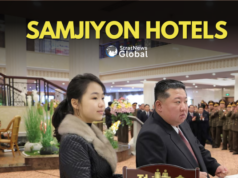“It’s a democracy with a vengeance. The entire political establishment there was actually one because the two largest parties had become one rather than being what is normal in a parliamentary democracy,” Manjeev Singh Puri, India’s former ambassador to Nepal told Stratnewsglobal.
“Streaks of authoritarianism were certainly there … Also, unlike India, Nepal as a society has become very globalized in the last 30 odd years. More than 25% of Nepalese are overseas. In terms of its remittances to GDP, it’s one of the five top countries in the world. Every family has members overseas.
“Therefore, social media was an important channel for communication. It was also an important channel in a place where the economy wasn’t doing well,” Puri pointed out.
As the capital city Kathmandu burnt, Nepal’s President Ram Chandra Paudel appealed to the protestors to exercise restraint and engage in dialogue.
According to Puri, “When the (former) prime minister (Oli) took this decision (to ban social media), I can only say it was an authoritarian kind of decision no matter pegging it on some Supreme Court ruling from several months back. The fact of the matter is people came out, they got mobilized because everyone in Nepal is well connected,” he said.
The Nepali Army also appealed for calm as protests turned violent. Former Nepal PM Sher Bahadur Deuba and his wife Foreign Minister Arzu Rana Deuba were severely assaulted by the protestors while their home was burnt down.
Just a few days back, Arzu Deuba was seen in an event in Kathmandu where the United States handed over two military aircraft to Nepal.
Puri stressed that the Nepali Army had been closely watching what was going on in Sri Lanka and Bangladesh and thus allowed people to “vent their anger” before springing into action.
“Because what is the other alternative? Firing? No. You have to handle this with sagacity. You have to handle it with patience. You have to give people an answer.”
The Nepalese Army has let people express their anger and anguish, it will urge the protestors now “to come together for Nepal.”
“I believe this is a time for sagacity at political leadership level. It’s a time for empathy and is a time for healing and also a time for calm,” he added.




